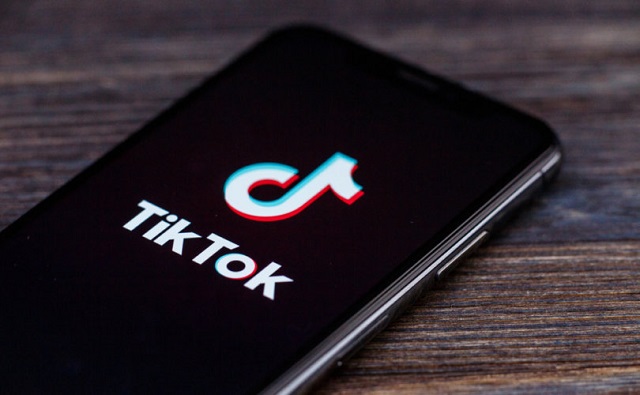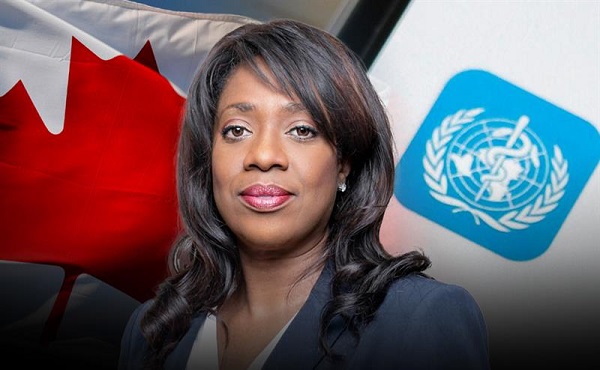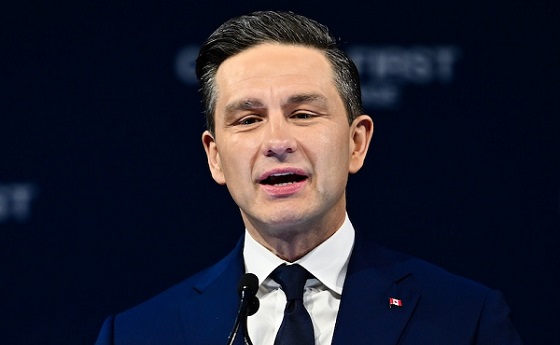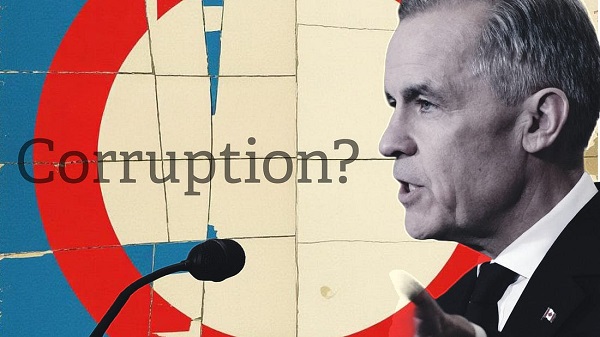Censorship Industrial Complex
TikTok partners with WHO to train influencers, ‘combat misinformation’

From LifeSiteNews
The WHO’s Fides network consists of some 800 creators and was launched in 2020 with the purpose of “mobilizing health content creators to counter misinformation and elevate evidence-based content.”
TikTok and the World Health Organization (WHO) are entering a one-year partnership to train influencers and promote regime-approved content concerning public health on the social media platform.
TikTok put out a press release on the partnership last Thursday, saying that it was a way for the social media company “to create reliable content and combat misinformation.”
/1 We're honored to forge a year-long collaboration with @WHO in line with our shared commitment to nurturing an informed, empathetic, and supportive online community. 🧵 pic.twitter.com/qRrDzHx8iF
— TikTokComms (@TikTokComms) September 26, 2024
/3 Creators in the Fides network from USA, UK, France, Japan, Korea, Indonesia, Mexico, and Brazil will be joining TikTok to create and share evidence-based content around public health.
— TikTokComms (@TikTokComms) September 26, 2024
Today, we’re partnering with the World Health Organization (WHO) to create reliable content and combat misinformation through the Fides network, a diverse community of trusted healthcare professionals and content creators. — TikTok press release, September 2024
Working with the WHO’s Fides network, TikTok will provide training on how to best disseminate WHO propaganda.
“Through our collaboration with WHO, we will be engaging Fides creators to translate complex scientific research into relatable and digestible video content, expanding across various health topics.
READ: Democrat senators urge several Big Tech companies to censor election ‘misinformation’
“To further equip creators, we will be working closely with WHO to provide access to creator training programs and resources,” the TikTok press release reads.
The WHO’s Fides network consists of some 800 creators and was launched in 2020 with the purpose of “mobilizing health content creators to counter misinformation and elevate evidence-based content.”
Today, Fides boasts reaching 150 million users across various platforms.
Another part of the WHO-TikTok partnership is to suppress any information that doesn’t align with the unelected globalist health body.
People are increasingly being targeted with misinformation and malinformation on these digital channels. The new collaboration between WHO and TikTok is to help addressing these challenges by promoting evidence-based content and encourage positive health dialogues. — World Health Organization (WHO) press release, September 2024
WHO and @TikTokComms announce a year-long collaboration aimed at providing people with reliable, science-based information on health and well-being.
In an increasingly digitized world, harnessing the power of digital platforms is vital to reach people globally, promote health… pic.twitter.com/1ZnhteTVJA
— World Health Organization (WHO) (@WHO) September 26, 2024
This is where WHO can step in to support influencers in delivering evidence-based information, ensuring that health conversations on platforms like TikTok are both impactful and informed. — Dr. Alain Labrique, WHO Director of Digital Health and Innovation, September 2024
The WHO also put out a press release on the partnership, explaining how certain influencers would be chosen and targeted to be propagandists for the regime:
“The collaboration will expand efforts around a number of relevant health topics, translating science-based information into relatable and digestible video content, with more support for influencers provided through TikTok’s creator training programs.”
According to the WHO, the goal of the partnership is to leverage “multiple digital communication platforms to increase outreach to people globally, to promote health literacy, healthy behaviors and actions in an increasingly digitized world.”
This isn’t the first time a UN organization has partnered with big tech to deliver its messaging.
We own the science, and we think that the world should know it, and the platforms themselves also do. — UN Communications Director Melissa Fleming, World Economic Forum Sustainable Development Impact Meetings, September 2022
During the pandemic, the UN deployed 'influencers who were much more trusted than the UN' on health messaging while working with TikTok to give UN-trained doctors 'verified ticks': UN Comms Chief to WEF, Sept 2022 pic.twitter.com/zCQ2GjUD8c
— Tim Hinchliffe (@TimHinchliffe) August 17, 2023
In September 2022, UN Under-Secretary-General for Global Communications Melissa Fleming told a World Economic Forum (WEF) panel on disinformation that the UN had partnered with TikTok on a project called “Team Halo” to boost COVID messaging coming from medical and scientific communities.
“Another really key strategy we had was to deploy influencers,” she said, adding, “influencers who were really keen, who have huge followings, but really keen to help carry messages that were going to serve their communities, and they were much more trusted than the United Nations telling them something from New York City headquarters.”
“We had another trusted messenger project, which was called ‘Team Halo’ where we trained scientists around the world and some doctors on TikTok, and we had TikTok working with us,” she added.
In the same panel, Fleming declared, “We own the science, and we think that the world should know it, and the platforms themselves also do” while bragging about how the UN partnered with Google to manipulate search results, so that only UN-approved messaging would appear at the top.
With this partnership, TikTok continues its role as a propaganda arm of the United Nations, of which the WHO is a part.
Reprinted with permission from The Sociable.
Censorship Industrial Complex
Canada’s justice minister confirms ‘hate crimes’ bill applies to online content

From LifeSiteNews
Individuals could be criminally charged for social media posts or other online content deemed offensive by the government under the Combating Hate Act.
Canadian Justice Minister Sean Fraser admitted that his new “hate crime” bill would indeed allow a person to be criminally charged for social media posts deemed offensive by the government.
Recently asked about Bill C-9, the Combating Hate Act, Fraser said the bill would indeed apply to certain online content that involves the “willful promotion of hatred.”
“Generally speaking, the law will apply equally online as it does in real communities,” he said, adding, “just in the limited circumstances where there is the willful promotion of hatred against someone.”
As reported by LifeSiteNews, Bill C-9 has been blasted by constitutional experts as allowing empowered police and the government to go after those it deems have violated a person’s “feelings” in a “hateful” way.
Bill C-9 was brought forth in the House of Commons on September 19 by Fraser. The Liberals have boasted that the bill will make it a crime for people to block the entrance to, or intimidate people from attending, a church or other place of worship, a school, or a community center. The bill would also make it a crime to promote so-called hate symbols and would, in effect, ban the display of certain symbols such as the Nazi flag.
While being questioned by Conservative MP Andrew Lawton about Bill C-9, Fraser was asked if the new law would “affect what people can say and write on the internet” and also if people could be retroactively punished for online comments made today.
In reply, Fraser said, “The only circumstance where you could imagine some online comment attracting scrutiny under this law would attach to behaviour that is criminal today but would be punished less severely.”
He said that “(t)he willful promotion of hate is a crime today, but we want to recognize a distinct charge where that same behaviour uses certain symbols of hate to bring a higher degree of culpability.”
John Carpay of the Justice Centre for Constitutional Freedoms (JCCF) has blasted Bill C-9 as something that would “empower police” and the government to go after those it deems have violated a person’s “feelings” in a “hateful” way.
Also, as reported by LifeSiteNews, Conservative MP Leslyn Lewis called out the hypocrisy of Bill C-9 for being silent regarding rising “Christian hate.”
Lewis has warned before that Bill C-9 will open the door for authorities to prosecute Canadians’ speech deemed “hateful possibly.”
Carpay also lamented how the bill mentions “rising antisemitism” but says nothing about the arson attacks on Catholic and Christian churches plaguing Canada.
“Anti-Catholic hate is obviously not on the minister’s radar. If it were, he would have mentioned it when introducing the Combating Hate Act,” Carpay wrote.
Since taking power in 2015, the Liberal government has introduced numerous new bills that, in effect, censor internet content and restrict people’s ability to express their views.
Censorship Industrial Complex
Who tries to silence free speech? Apparently who ever is in power.

Now that Trump is running Washington, Conservative thinkers must ponder a new-found appreciation for silencing speech they don’t like.
From StosselTV
War on Words: Both Parties Try to Silence Speech They Don’t Like
Donald Trump, before he was reelected, said he’d end government censorship. But now that he’s in office? He calls speech he doesn’t like “illegal.”
Free Speech should be a bedrock American value, no matter who’s in office. After the murder of Charlie Kirk, Republicans, who once complained about censorship, became censors. Democrats suddenly flip-flopped. All politicians should remember, the way to fight speech you don’t like, is with more speech, not censorship.
After 40+ years of reporting, I now understand the importance of limited government and personal freedom.
——————————————
Libertarian journalist John Stossel created Stossel TV to explain liberty and free markets to young people.
Prior to Stossel TV he hosted a show on Fox Business and co-anchored ABC’s primetime newsmagazine show, 20/20.
Stossel’s economic programs have been adapted into teaching kits by a non-profit organization, “Stossel in the Classroom.” High school teachers in American public schools now use the videos to help educate their students on economics and economic freedom. They are seen by more than 12 million students every year.
———
To make sure you receive the weekly video from Stossel TV, sign up here: https://www.johnstossel.com/#subscrib…
———
-

 Agriculture1 day ago
Agriculture1 day agoFrom Underdog to Top Broodmare
-

 Health2 days ago
Health2 days agoCanada surrenders control of future health crises to WHO with ‘pandemic agreement’: report
-

 Censorship Industrial Complex2 days ago
Censorship Industrial Complex2 days agoCanada’s justice minister confirms ‘hate crimes’ bill applies to online content
-

 Health1 day ago
Health1 day agoSovereignty at Stake: Why Parliament Must Review Treaties Before They’re Signed
-

 Bruce Dowbiggin2 days ago
Bruce Dowbiggin2 days agoIs The Latest Tiger Woods’ Injury Also A Death Knell For PGA Champions Golf?
-

 Alberta2 days ago
Alberta2 days agoAlberta’s licence plate vote is down to four
-

 Business1 day ago
Business1 day ago$15B and No Guarantees? Stellantis Deal explained by former Conservative Shadow Minister of Innovation, Science and Technology
-

 Bruce Dowbiggin1 day ago
Bruce Dowbiggin1 day agoWhile America Shrugs Off Woke, Canada Doubles Down On Feminizing Society








